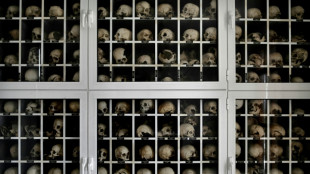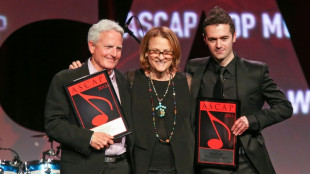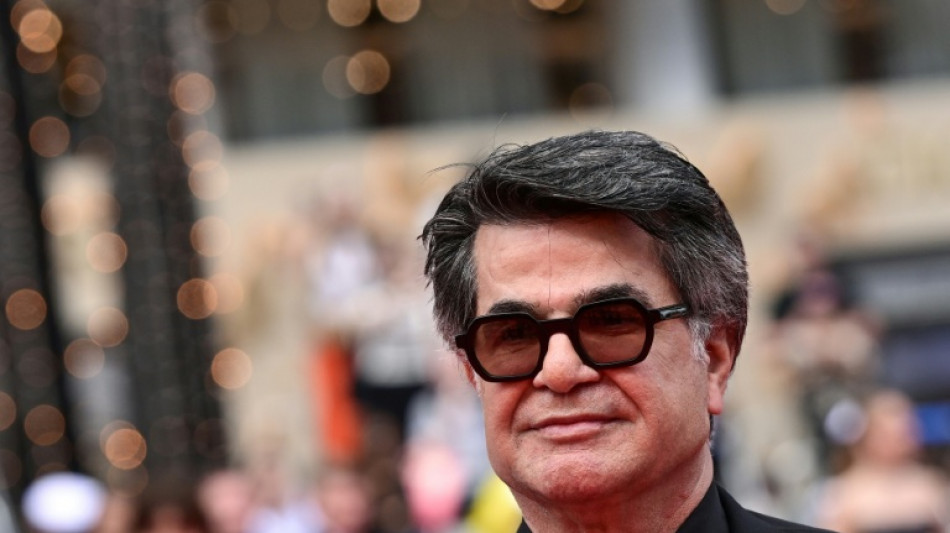
-
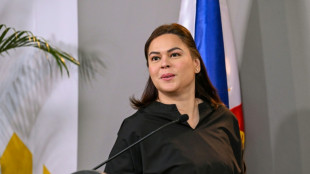 Philippines VP Sara Duterte announces 2028 presidential run
Philippines VP Sara Duterte announces 2028 presidential run
-
Asian stocks up, oil market cautious
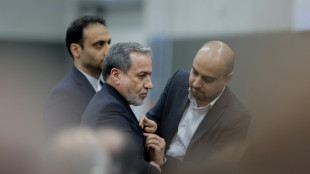
-
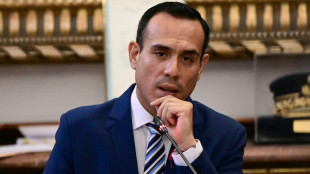 Peru Congress impeaches interim president after four months in office
Peru Congress impeaches interim president after four months in office
-
Hungry, wounded, orphaned: South Sudan's children trapped in new conflict
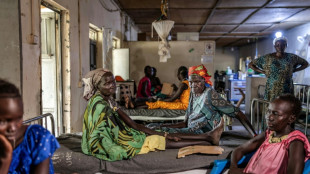
-
 UK manufacturers struggle under sky-high energy bills
UK manufacturers struggle under sky-high energy bills
-
New tech and AI set to take athlete data business to next level

-
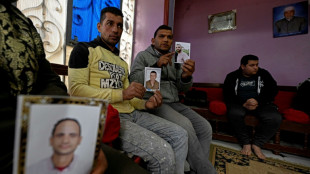 'Pay or he dies', families told as more Egyptians risk Mediterranean crossing
'Pay or he dies', families told as more Egyptians risk Mediterranean crossing
-
Indonesia coal plant closure U-turn sows energy transition doubts
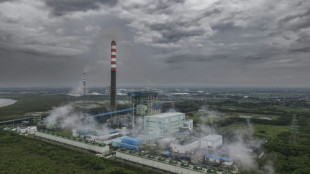
-
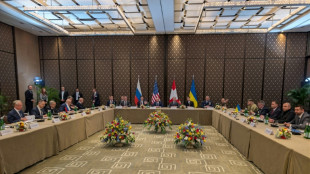 Ukraine war talks to resume in Geneva with no sign of progress
Ukraine war talks to resume in Geneva with no sign of progress
-
Afghan woman's boutique brightens Bamiyan
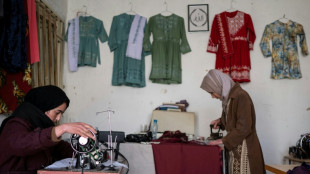
-
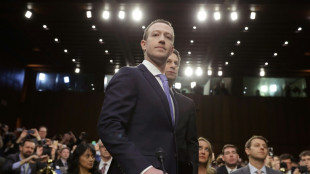 Zuckerberg to testify in landmark social media addiction trial
Zuckerberg to testify in landmark social media addiction trial
-
US towns resist Trump plans to jail immigrants in warehouses
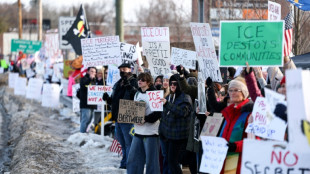
-
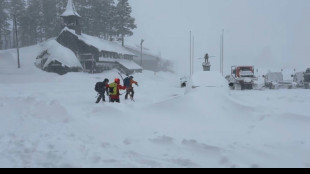 Ten skiers missing in California avalanche
Ten skiers missing in California avalanche
-
Guatemalan security forces deploy to gang-plagued capital
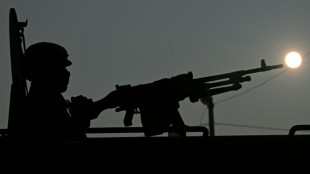
-
 US to discuss base with Mauritius as UK returns islands
US to discuss base with Mauritius as UK returns islands
-
Mexico prepares for possible drone threats during the World Cup
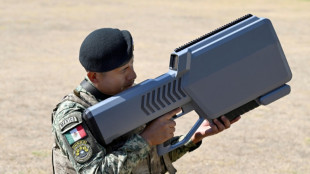
-
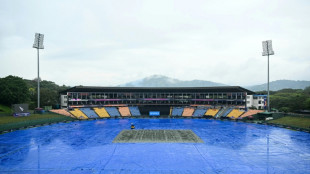 Bowlers, selectors under fire after Australia's T20 World Cup exit
Bowlers, selectors under fire after Australia's T20 World Cup exit
-
Racism allegations overshadow Real Madrid victory as PSG win in Champions League

-
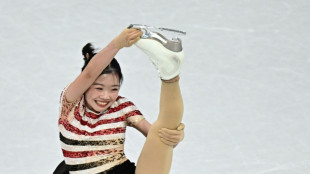 Japan's Nakai shines on ice as Frostad soars to Olympic big air gold
Japan's Nakai shines on ice as Frostad soars to Olympic big air gold
-
Japanese teen Nakai leads Sakamoto after Olympic women's short programme
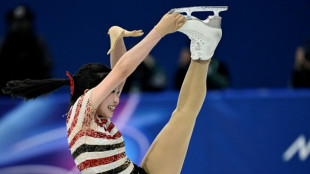
-
 Sweden to face USA in Olympic men's ice hockey quarter-finals
Sweden to face USA in Olympic men's ice hockey quarter-finals
-
Alexander-Arnold hits out at 'disgusting' alleged Vinicius racism

-
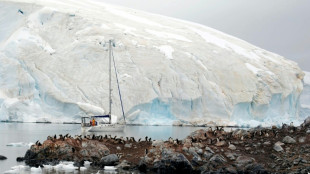 Bird flu ravaging Antarctic wildlife, scientist warns
Bird flu ravaging Antarctic wildlife, scientist warns
-
Nakai leads Sakamoto in Olympics after women's short programme
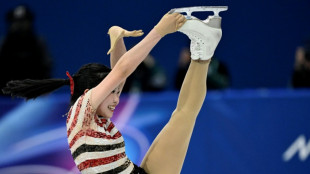
-
 Guirassy guides Dortmund past Atalanta in Champions League play-offs
Guirassy guides Dortmund past Atalanta in Champions League play-offs
-
Vinicius stunner helps Real Madrid edge Benfica in play-off marred by alleged racism
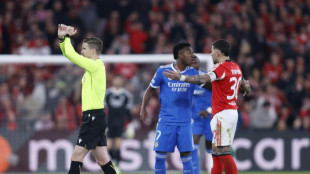
-
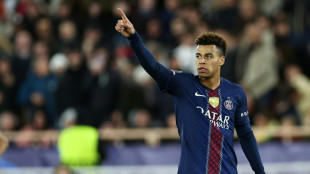 Doue inspires PSG to comeback Champions League win in Monaco
Doue inspires PSG to comeback Champions League win in Monaco
-
'Climate cult' hurts Europe's economy, US energy secretary tells AFP
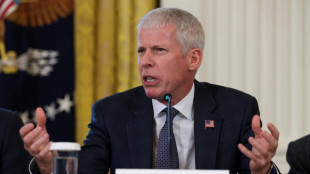
-
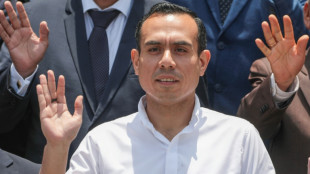 Peru's presidential musical chairs
Peru's presidential musical chairs
-
France arrests nine over far-right activist's killing
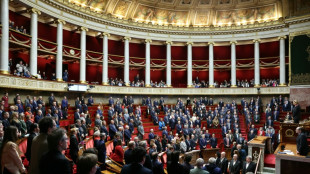
-
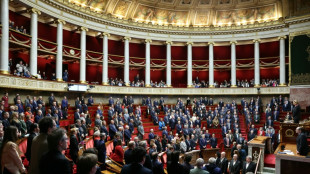 France arrests seven over far-right activist's killing
France arrests seven over far-right activist's killing
-
Frostad dethrones Ruud in Olympic freeski big air thriller

-
 Galatasaray thrash 10-man Juve in Champions League play-off 1st leg
Galatasaray thrash 10-man Juve in Champions League play-off 1st leg
-
Woods return timeline uncertain, but won't rule out Masters
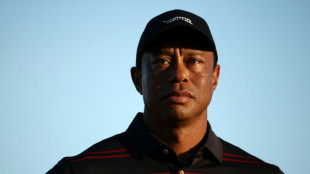
-
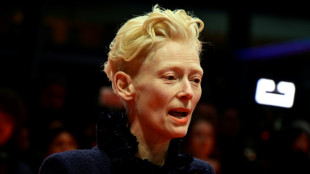 Dozens of film figures condemn Berlin Film Festival 'silence' on Gaza
Dozens of film figures condemn Berlin Film Festival 'silence' on Gaza
-
Iran, Ukraine talks spark diplomatic merry-go-round in Geneva

-
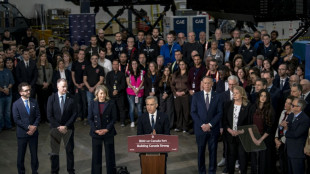 Canada launches huge defence plan to curb reliance on US
Canada launches huge defence plan to curb reliance on US
-
US says will match alleged Chinese low-yield nuclear tests
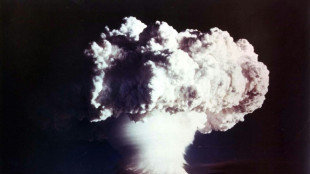
-
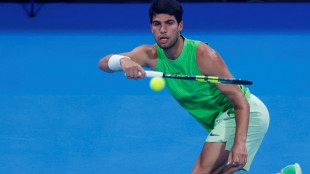 Alcaraz battles into second round of Qatar Open
Alcaraz battles into second round of Qatar Open
-
Russians, Belarusians to compete under own flags at Paralympics: IPC tells AFP

-
 Bayer proposes class settlement for weedkiller cancer claims
Bayer proposes class settlement for weedkiller cancer claims
-
Gauff, Rybakina cruise into Dubai last 16

-
 Greenland entrepreneur gambles on leafy greens
Greenland entrepreneur gambles on leafy greens
-
Father of US school shooter goes on trial on murder charges
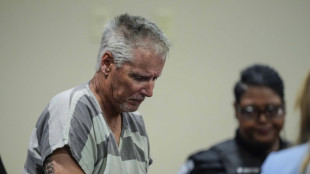
-
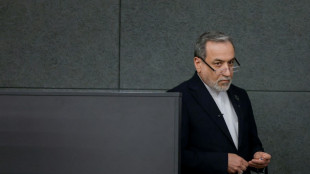 Iran, US agree on 'guiding principles' for deal at Geneva talks: Iran FM
Iran, US agree on 'guiding principles' for deal at Geneva talks: Iran FM
-
Warner Bros. gives Paramount one week to outbid Netflix

-
 Russians, Belarusians allowed to compete under own flags at 2026 Paralympics: IPC tells AFP
Russians, Belarusians allowed to compete under own flags at 2026 Paralympics: IPC tells AFP
-
Ukrainian wife battles blackouts to keep terminally ill husband alive
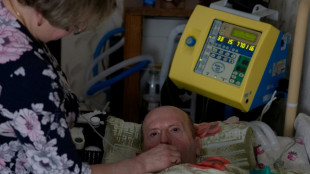
-
 Pollock handed first England start for Ireland visit
Pollock handed first England start for Ireland visit
-
Oil prices fall back as 'hopeful' Tehran responds to Trump
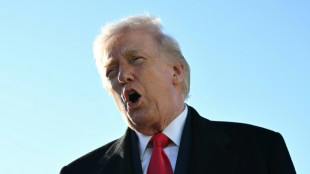

Back at Cannes, Iran filmmaker Panahi defies repression
Back in Cannes for the first time in 15 years, dissident Iranian filmmaker Jafar Panahi spoke to AFP about how he feels "alive" thanks to filmmaking and the danger of continuing to work in the Islamic republic.
Imprisoned twice and until recently subjected to a travel ban, Panahi also said he was not afraid of the consequences of showing "It Was Just an Accident" in Cannes.
The answers have been translated by AFP from the original Persian and edited for clarity:
Q: Your new film "It Was Just an Accident" explores the moral dilemma faced by Iranians tempted to take revenge on their torturers. What does this say about the issues facing Iranian society?
"We chose a range of characters, from violent to non-violent, from a simple man to someone completely detached from such concerns.
"Through their actions and reactions, we reach -- or perhaps fail to reach -- a conclusion about what the right path might be.
"We let the viewer decide for themselves, asking what would they do in that situation? For me, the real question is: what would I do if this actually happened? And honestly, I don't know.
"And in the end, perhaps the film suggests that the real issue lies within a flawed structure — and that the problem lies with the government, not the people trapped inside it."
Q: In what way does your film denounce a system of government?
"It's about how we can shape the future of this country. Where is it headed? Will this cycle continue, or will we reach a place where no one dictates how we dress, what we create, or what we eat? No one has the right to control that.
"We are looking forward, thinking a few steps ahead. When will this become a reality? I don't know. But I hope it will, and I believe that it will."
Q: You were sentenced in 2010 and imprisoned twice in Iran. Are you afraid for your safety when you return home after Cannes?
"What matters most is that the film gets made... I haven't made space in my thoughts for whatever else might happen. I'm alive as long as I'm making films. If I'm not making films, then what happens to me no longer matters."
Q: How do you feel about being back at the Cannes Festival?
"The truth is I missed watching films with an audience because I couldn't put my films on in cinemas, I couldn't sit and watch them or see people's reactions. That's the biggest thing, to experience a film with an audience. When you watch a film with others, you feel alive.
"Cannes is a bigger stage and has its own qualities, but what I truly want is to sit in a cinema with ordinary people in Iran and watch this film. That's the most important thing."
Q: Do you fear being prevented from making films due to restrictions in Iran?
"They (the Iranian government) have always stopped us from making films, but we find a way. It's typical of regimes like this: they don't let artists work, they don't let anyone do what they love.
"What matters is that you find a way, just as I and other friends have done. The important thing is not to give up trying, and not to expect a regime like this to suddenly say: 'Go ahead, make your film.'
"When they gave me a 15- or 20-year work ban, I could have easily gone home and told myself: 'That's it, it's over. I can't do anything, it's not my fault,' and then let myself sink into despair.
"But I thought: 'No -- what should I do instead?' The important thing is to keep working."
X.Karnes--AMWN
